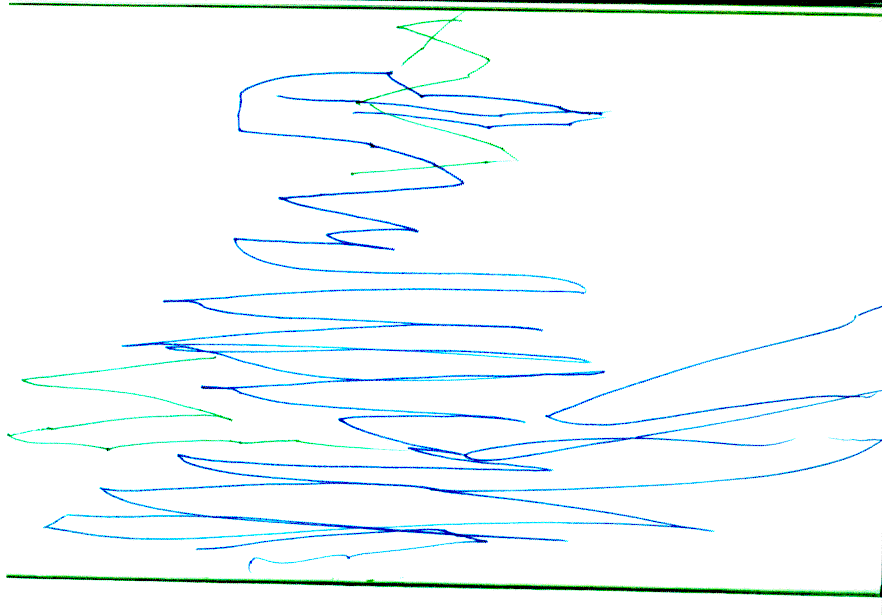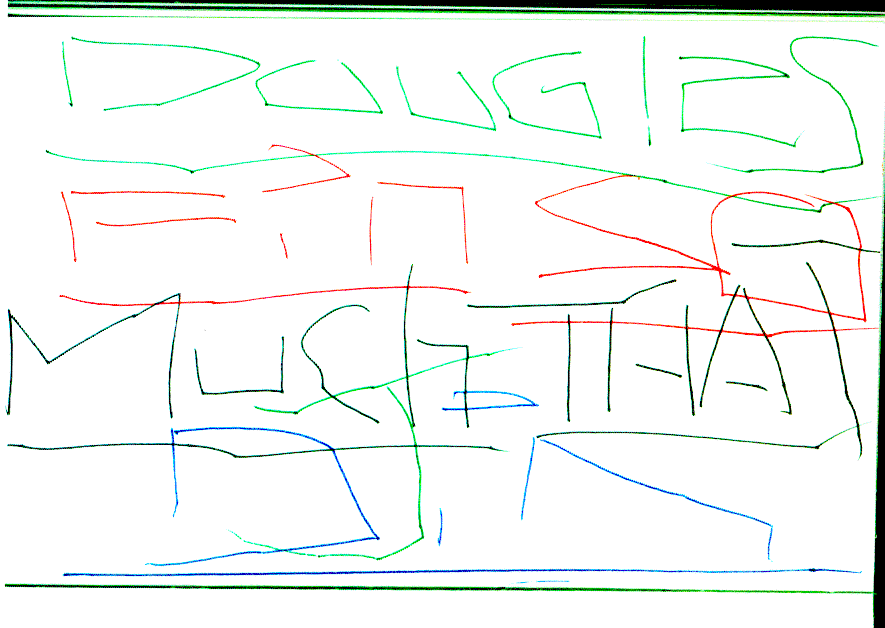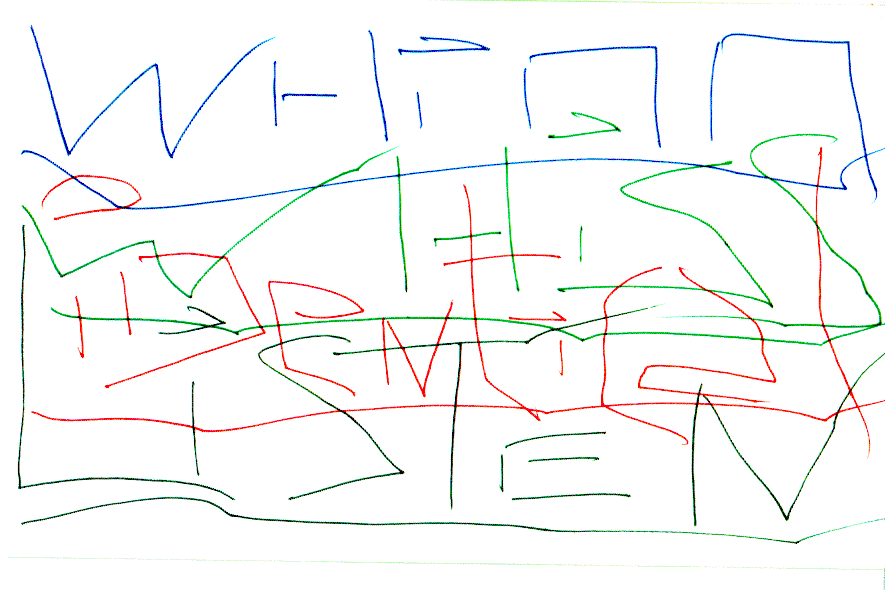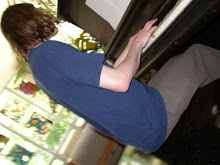I discovered the films of Stan Brakhage by complete accident. A few years ago, when I was living in San Francisco, I read that Bob Grenier was going to give one of his "readings" at the Yerba Buena Center for the Arts. I write "readings" with the quotation marks because Grenier doesn't present his poetry in the usual format--stand behind a podium, read poems off a sheet, etc. This is, at least in part, because Grenier's poems don't fit the usual format. Years ago, he gave up typed, black and white poems and started to handwrite his poems in ink. Years ago, he gave up typed, black and white poems and started to write this:



 Instead of reading his poems, he shows slides of poems like the ones above and tries to talk about them, focusing especially on the process of reading or deciphering the handwriting itself. I had heard about Grenier's presentations of his poems, but the "reading" at Yerba Buena was my first opportunity to see Grenier in person.
Instead of reading his poems, he shows slides of poems like the ones above and tries to talk about them, focusing especially on the process of reading or deciphering the handwriting itself. I had heard about Grenier's presentations of his poems, but the "reading" at Yerba Buena was my first opportunity to see Grenier in person.I went with a few friends from graduate school--I think I was the only one there who knew Grenier's work, it was my idea to go--and when we got there, we discovered that the other half of the night's bill was a showing of some of Stan Brakhage's films. I had never seen them, and I didn't know who Stan Brakhage was.
The films were something of a revelation. In their refusal to give narrative, to give a static image to hold on to, they made me aware of time in the way that Gertrude Stein's unfolding grammar made me constantly aware of the present time. In both there is no place to rest, so the "now" of time is insistant, is constantly asserting itself.
And in both there is a depth of emotion. While much "experimental" work falls away from me and is forgotten, work like Brakhage's films remains with me, close to me. More and more, I believe it is because of this emotion and this care on which Brackhage's abstract films are built. I do want work that pushes and breaks the norms of genre, but I want it to retain a fullness of humanity. Brakhage's films are beautiful.

No comments:
Post a Comment